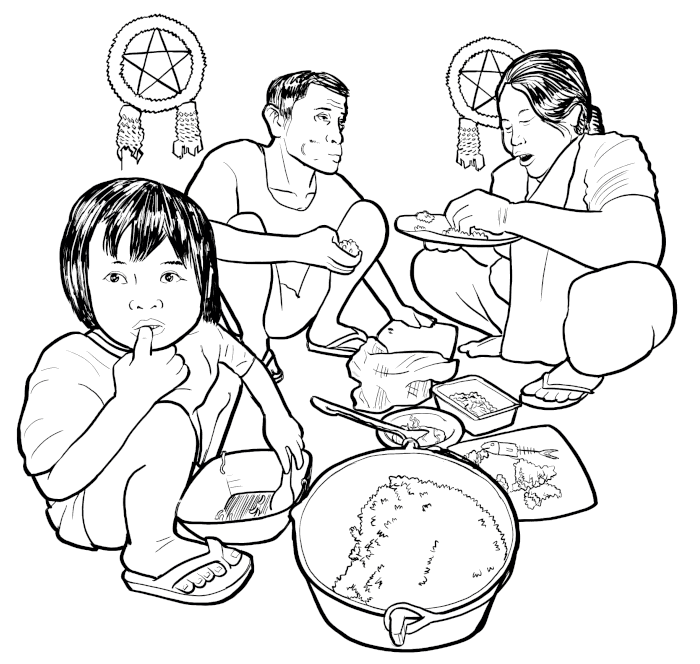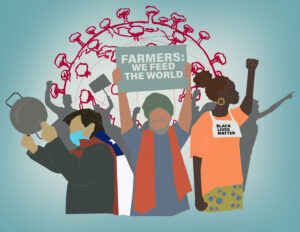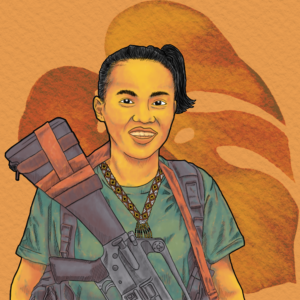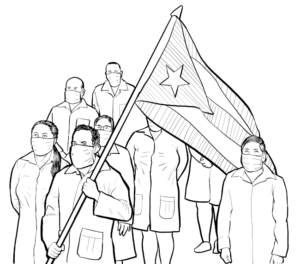Christmas of poverty and hunger


Christmas is one of the most anticipated occasions by Filipinos annually. A major part of this celebration is the noche buena, a traditional feast often celebrated by Filipino families on Christmas eve. Amid the pandemic however, many families will opt not to carry on with the tradition due to the crisis which has been ravaging the nation for more than nine months already. Most of whom have lost their jobs and incomes during the lockdown.
These people include Gerald, a jeepney driver. “I still do not have any plans for Christmas because I am on a tight budget as I couldn’t drive my jeepney,” he said. This will be different to his usual Christmas. Before, their family usually plans prior to the occasion.
Their living condition began to deteriorate when the regime ordered a stop to jeepney operations in the name of the lockdown. He is among the 200,000 drivers who are still not allowed to operate until today.”
“Before, we used to eat delicious food such as chicken and pork, but this pandemic has made life extremely difficult. There were times when we just depended on food aid and repeatedly ate canned goods, noodles and fish,” he pointed out. Like them, two out of five Filipino families experienced hunger during the pandemic, while one out of five have experienced not eating at all for a day.
He was also left with no other option but to drop his only child out of school, despite the latter’s wish to continue studying. A joint research by the World Bank and National Economic and Development Authority in August pointed out that only 20% of those who had children in school before the pandemic are able to continue doing so. Nearly 80% said that they will send their children back to school once these reopen.
Taho vendor Win-win said that aside from being on a tight budget, their family will not be complete this Christmas due to quarantine restrictions. “This Christmas will most likely be sad because we will not be complete,” he said. Compared to before, his five children will not be able to celebrate with their grandfather, grandmother, cousing, aunts and uncles. Like Gerald, his family primarily relied on food aid during the lockdown.
Gerald and Win-win are among the 40% of workers who suffered income losses during the pandemic. They are called the “new poor” by the World Bank, a category which refers to people who have lost their jobs or sources of income during the pandemic.
Small scale businessmen from the informal sector are likewise on a tight budget. They include Tam, who asked advice from her friends on how to spend her limited ₱1,000-budget this Christmas. “That’s what I have left because I’ll use the rest of my savings to buy rice,” she said. Most of her friends told her to just buy chicken meat as this is the cheapest in the market this month. Compared to pork which costs ₱320 per kilo, chicken only costs ₱210 per kilo. Last month, the inflation rate rose to 3.3% which saw the highest increase in the prices of food commodities.
However, not all will be able to prepare anything for Christmas. “You’re lucky to have even a meager budget, our family will just sleep it through,” replied Lani to Tam. Since the pandemic hit, more and more are going hungry and just rely on relief by the church and private institutions. In the aforementioned report, more than 54% of poor families said they cannot afford to buy essentials such as food.
This rising number of feeding program beneficiaries by humanitarian organizations and the church proves this issue. They include the beneficiaries of the soup kitchen operated by the Society of Divine Word in Metro Manila which feeds about 1,000 individuals, five days a week, from just 250 in April. “The majority are still homeless,” said the priest who manages the soup kitchen. “But there’s a good number who are with homes but are desperate because there are no jobs.”






